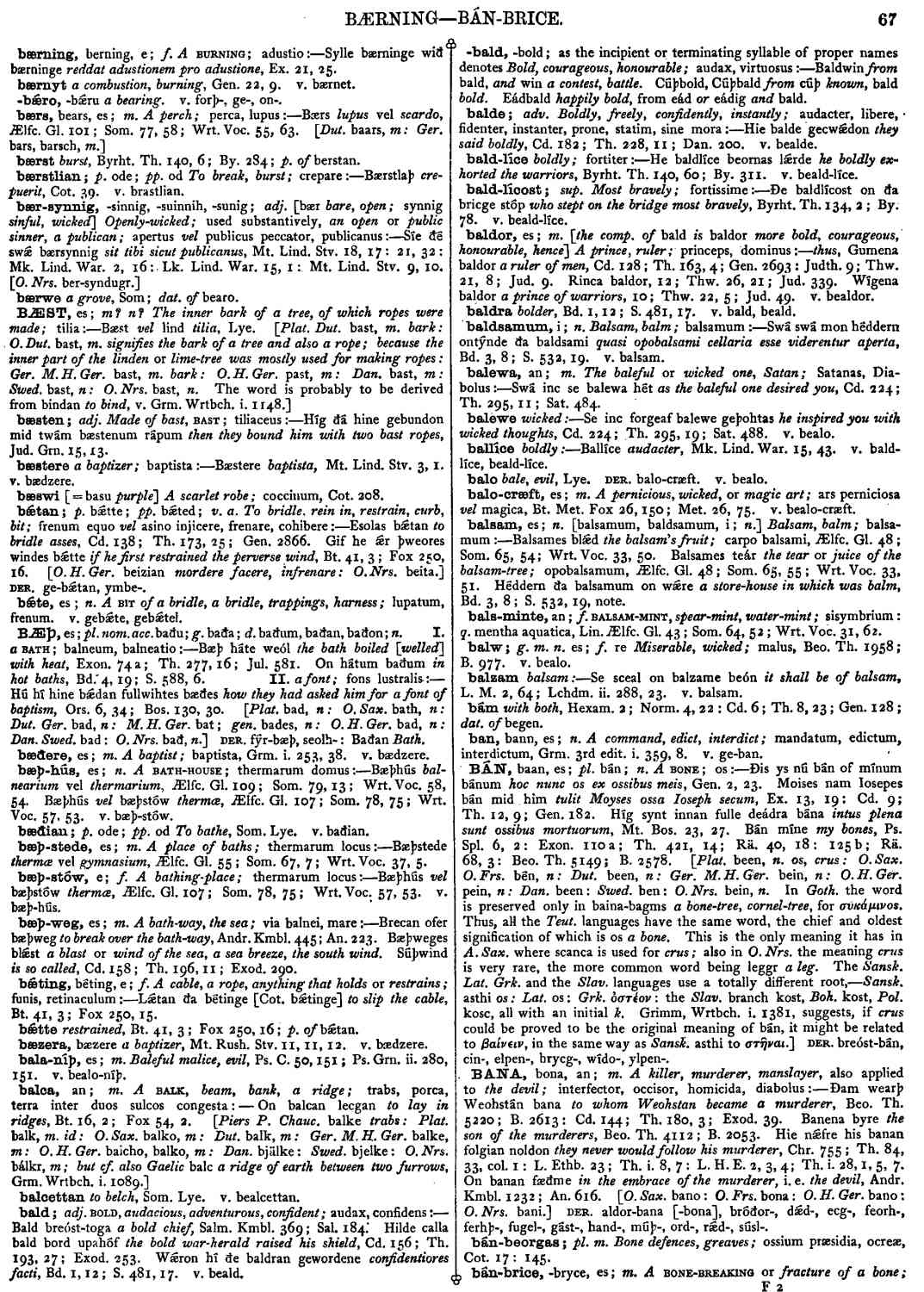BÁN
- noun [ neuter ]
-
Ðis ys nú bán of mínum bánum
hoc nunc os ex ossibus meis,
- Gen. 2, 23 .
-
Moises nam Iosepes bán mid, him
tulit Moyses ossa Ioseph secum,
- Ex. 13, 19 :
- Cd. 9; Th. 12, 9 ;
- Gen. 182 .
-
Híg synt innan fulle deádra bána
intus plena sunt ossibus mortuorum,
- Mt. Bos. 23, 27 .
-
Bán míne
my bones,
- Ps. Spl. 6, 2 :
- Exon. 110a; Th. 421, 14 ;
- Rä. 40, 18: 125b ;
- Rä. 68, 3 :
- Beo. Th. 5149 ;
- B. 2578 .
Bosworth, Joseph. “BÁN.” In An Anglo-Saxon Dictionary Online, edited by Thomas Northcote Toller, Christ Sean, and Ondřej Tichy. Prague: Faculty of Arts, Charles University, 2014. https://bosworthtoller.com/2958.
Checked: 1